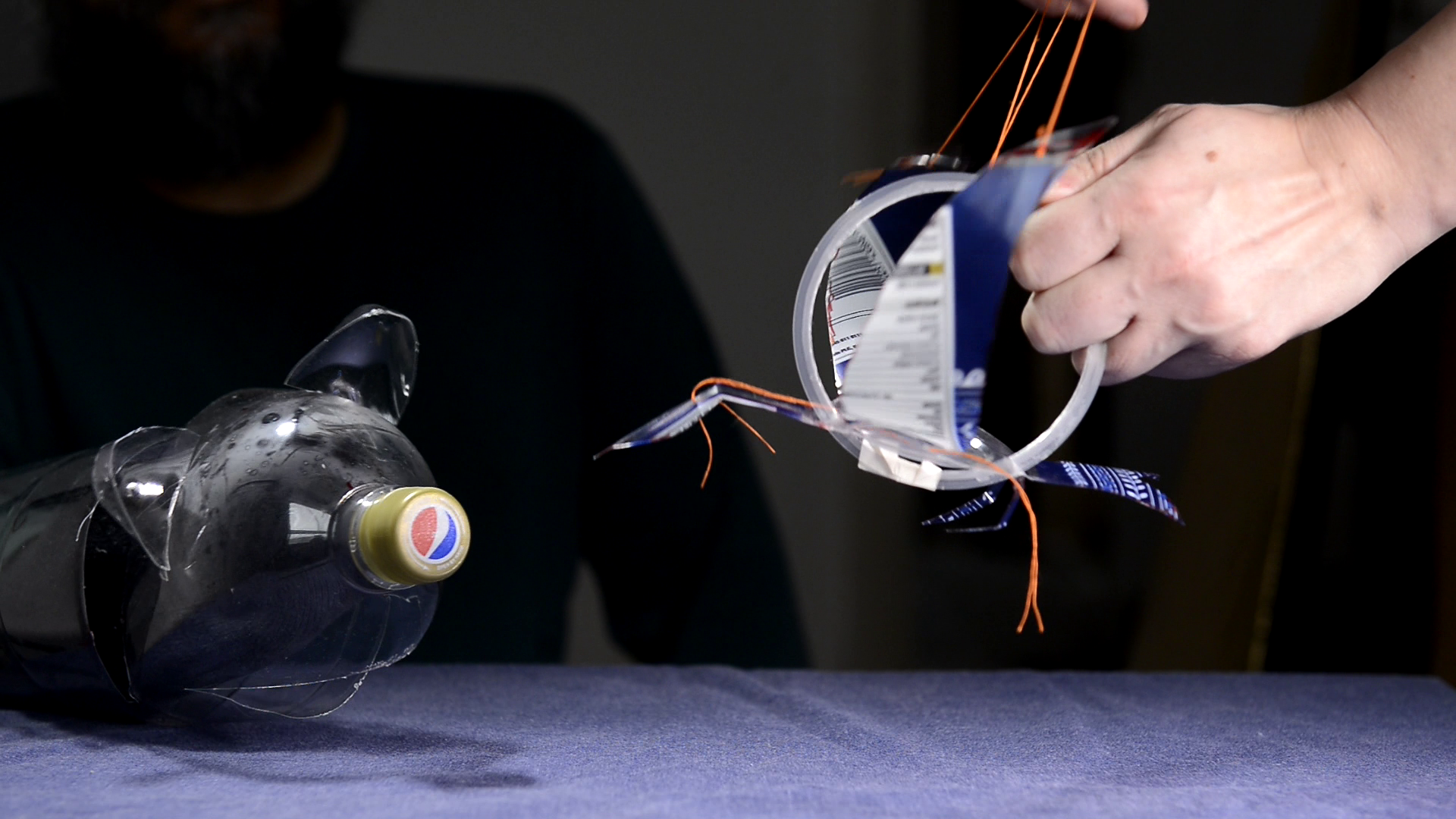
Named after PET plastic, the project promotes sustainability through art, by using readily available recycled household items accessible for all ages, backgrounds and abilities.
How we started….
The PET Shop Project started as a series of tutorial videos and live online workshops aiming to improve accessibility for people stuck indoors during the coronavirus pandemic.
Creators, Rachel and Anzir launched a unique project to help isolated people get involved in sustainable crafts, by using recycled household items to create new, fun, and functional things.
By creating both subtitles and audio descriptions for people with visual and hearing impairments, we hope to help everyone access arts and crafts, even if they might never have used a pair of scissors before.
Workshops
-

Collect it
We asked participants to collect a weeks worth of waste to measure how much plastic and paper waste that would have potential use.
-

Deconstruct it.
By deconstructing different materials we discuss the process involved in making and recycling for these materials that also dictates the nature on how it can be re-built..
-

Build it.
It all begins with an idea. using simple techniques that require a pair of scissors and simple mechanisms to re-build into a form without the use of harmful adhesives.
The Facts
Crude oil, gas and natural minerals are mixed with harmful petro-chemicals that make up variations of plastics that are categorised into synthetic or biobased products.
UK population throws away over 295 BILLION pieces of plastic every year. Making the average individual go through 4316 pieces per year which makes 12 pieces per day.
Less than 10% of everyday plastic actually gets recycled in the UK.
It is determined that up to 12 million tonnes of plastic enters our oceans every year. It degrades into smaller pieces that breakdowns to a microscopic level called micro plastics.
Most marine debris (80%) comes from trash and debris in urban runoff, i.e. land-based sources.
31.7% of landfill waste is made up of food containers and packaging.
Solutions
-

Reduce it
There are many ways to reduce the amount of single-use plastics by
choose things which are less packaged
ditch single use cups, straws, water bottles and cutlery by bringing reusables if you can
remember your reusable shopping bags - in the UK we’ve reduced plastic bag usage by 95% since charges were introduced in 2015.
-

Reuse it.
Reusing and repurposing things can increase their lifespan and turn a single use object into having multiple usages.
Reuse food containers to store food and liquids from surplus meals to reduce food waste. They are great to take to your local refill shops to top up any domestic products.
Skip the straws and switch to metal or bamboo alternatives.
Drink from re-usable drinking bottles.
See Ocean Generation for their top 20 tips on how to reuse plastics.
-
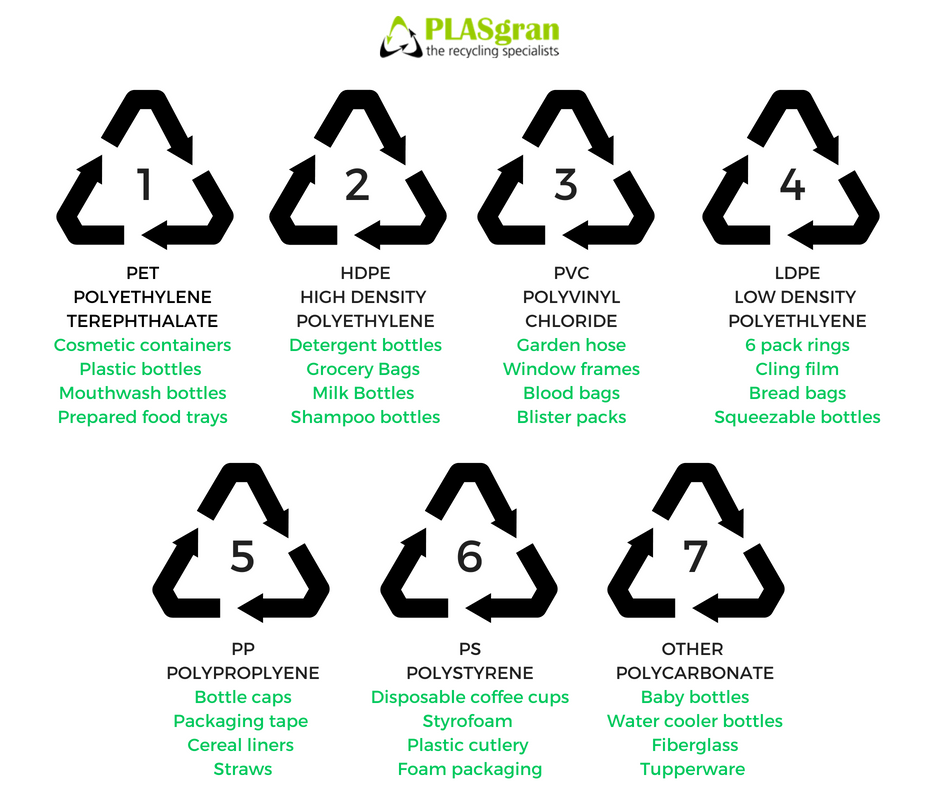
Recycle it.
Recycling starts at home. try using these easy tricks to get started.
clean your plastics and waste packaging with cold water. Food contamination can interfere with the recycling process.
Get to know plastic symbols- 1,2,4 are most likely to be collected and recycled by your local council authorities. (Press the try it button to find out more)
Find out more by going to Recycle Now for advice on how waste is recycled by your local authorities.
Circularity….. is a term used in a circular economy. A process that tackles global challenges towards biodiversity, climate change, waste and pollution which involves reusing, refurbishing, repairing and recycling of waste materials.
Our Workshops provide a creative alternative to learning about techniques and mechanisms that repurposes single use packaging that can be reformed or recycled by circularity.
Gallery
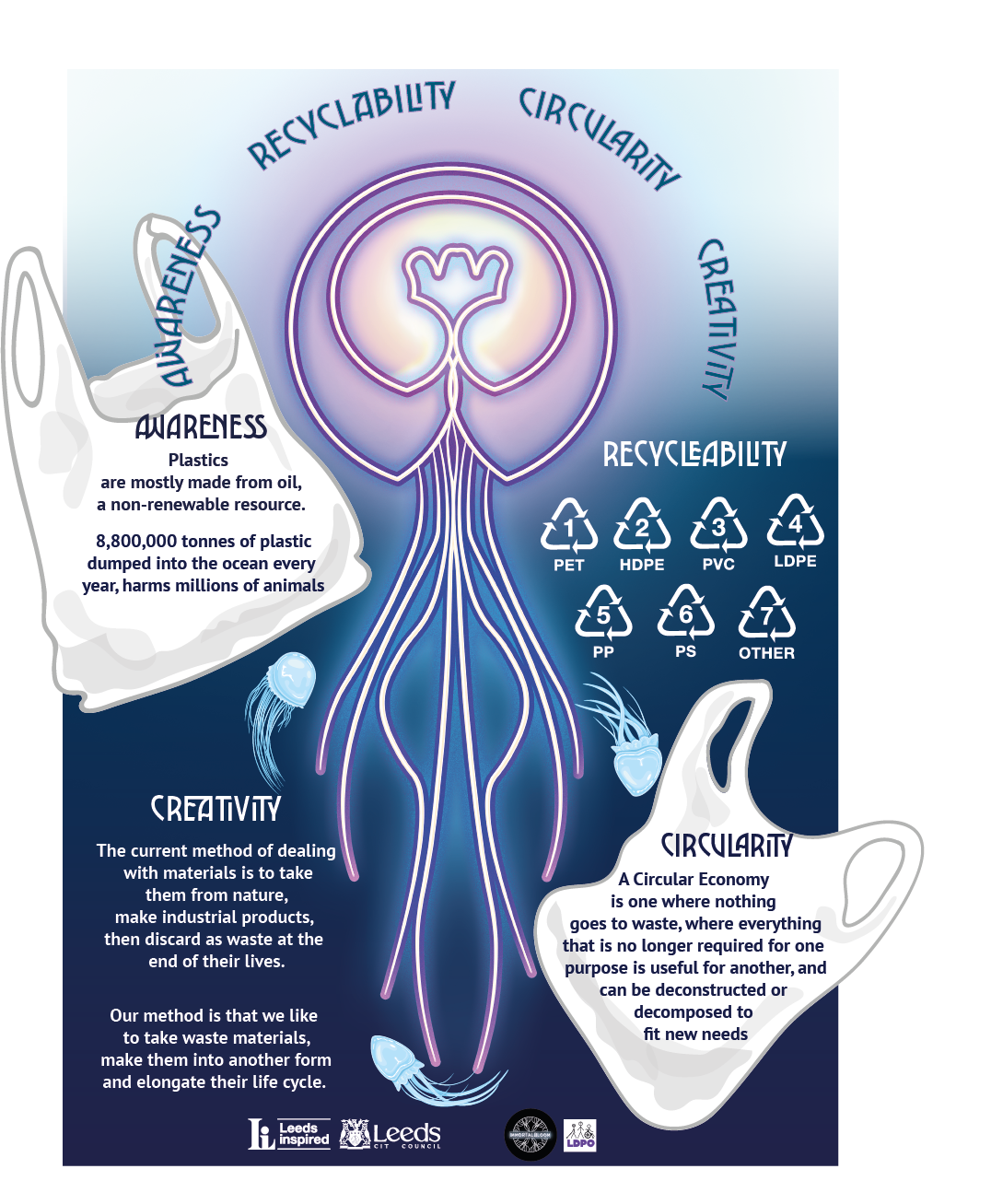
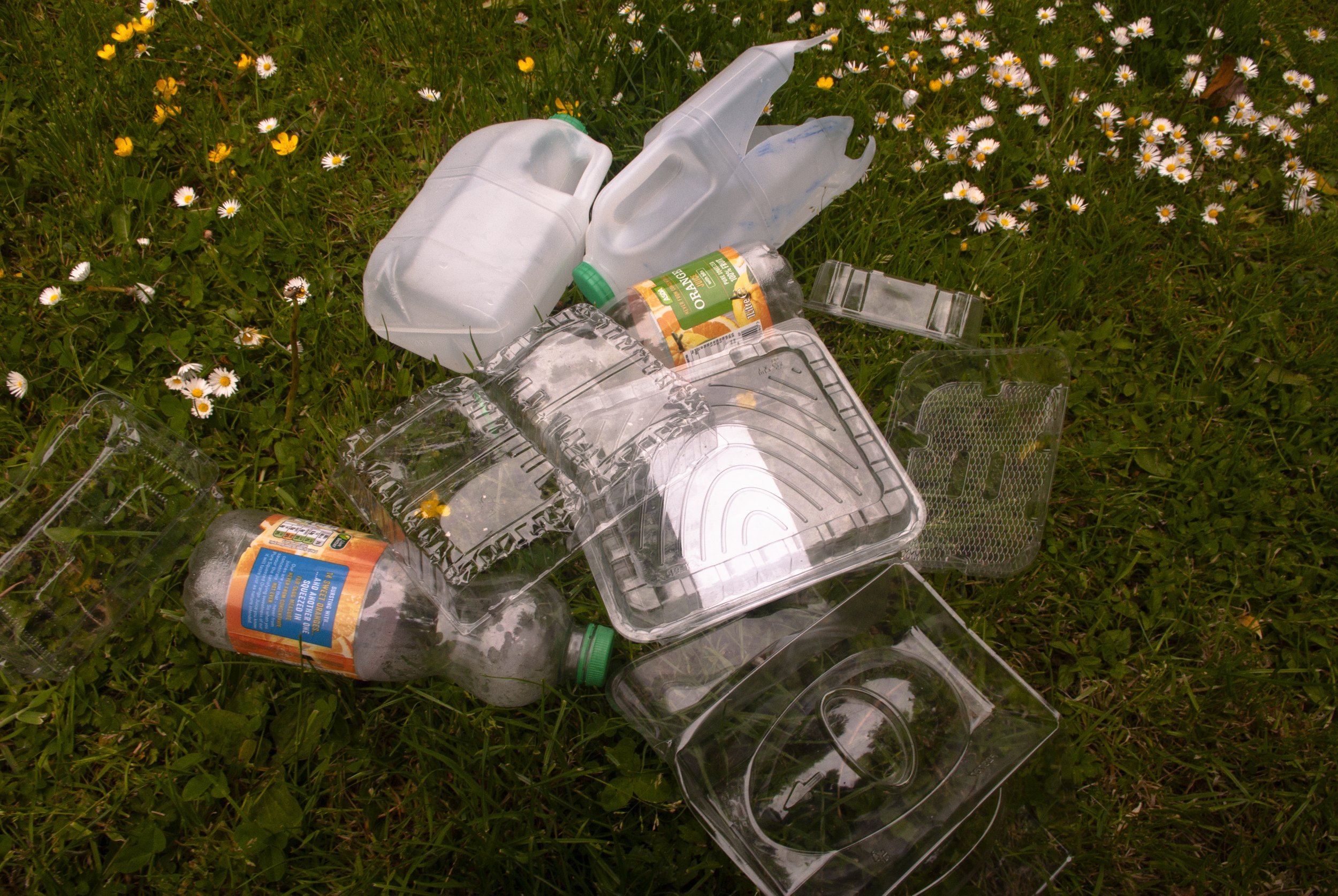
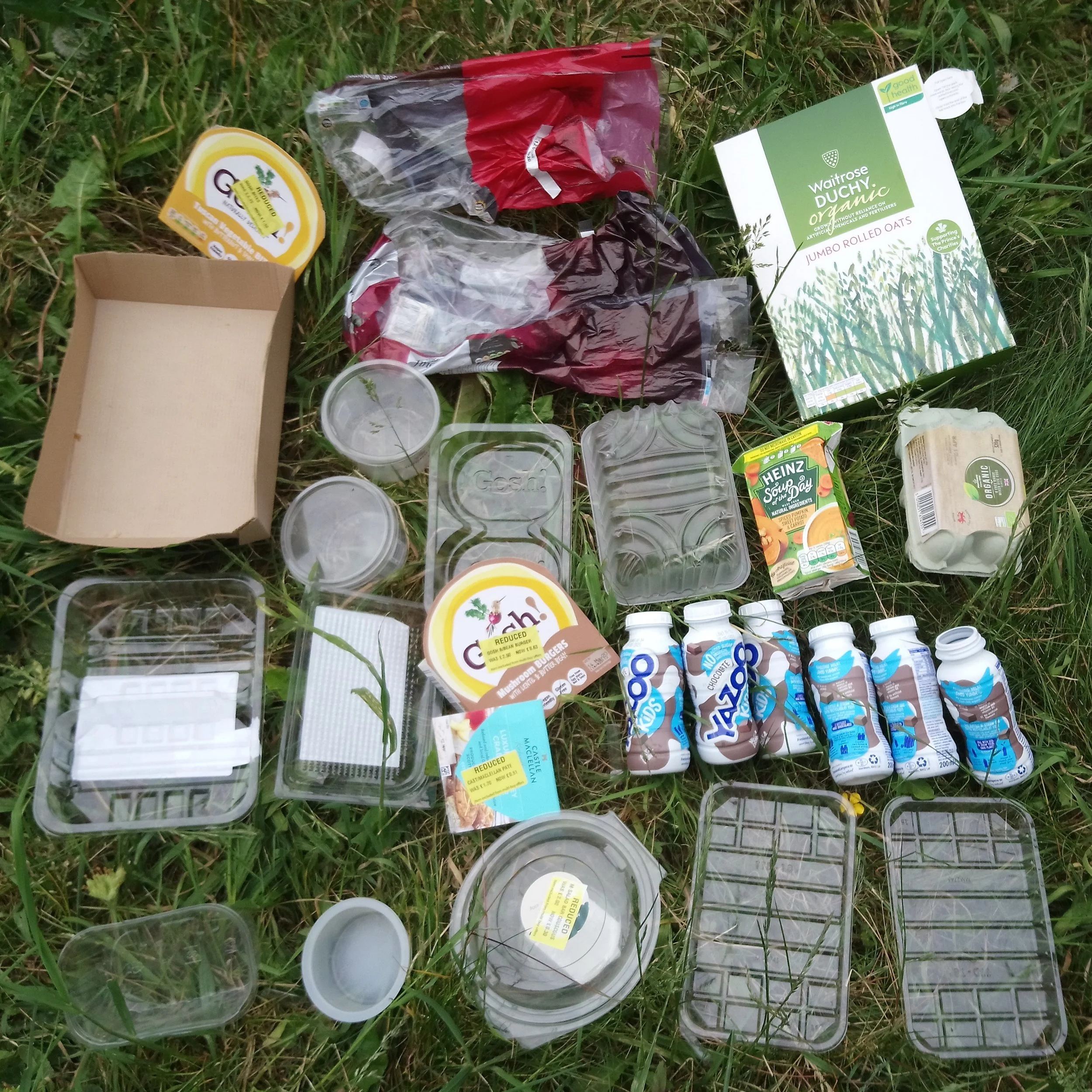
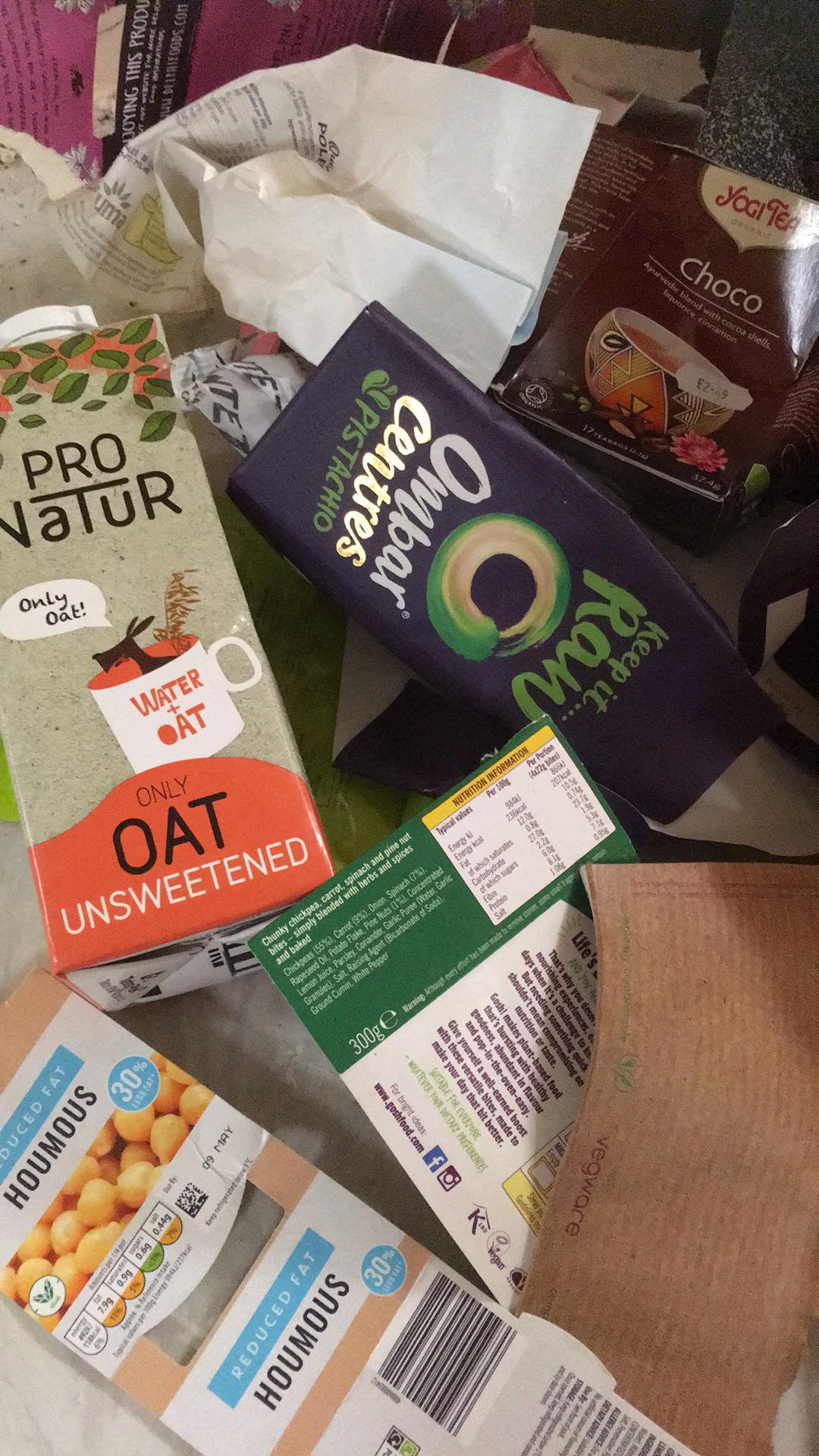
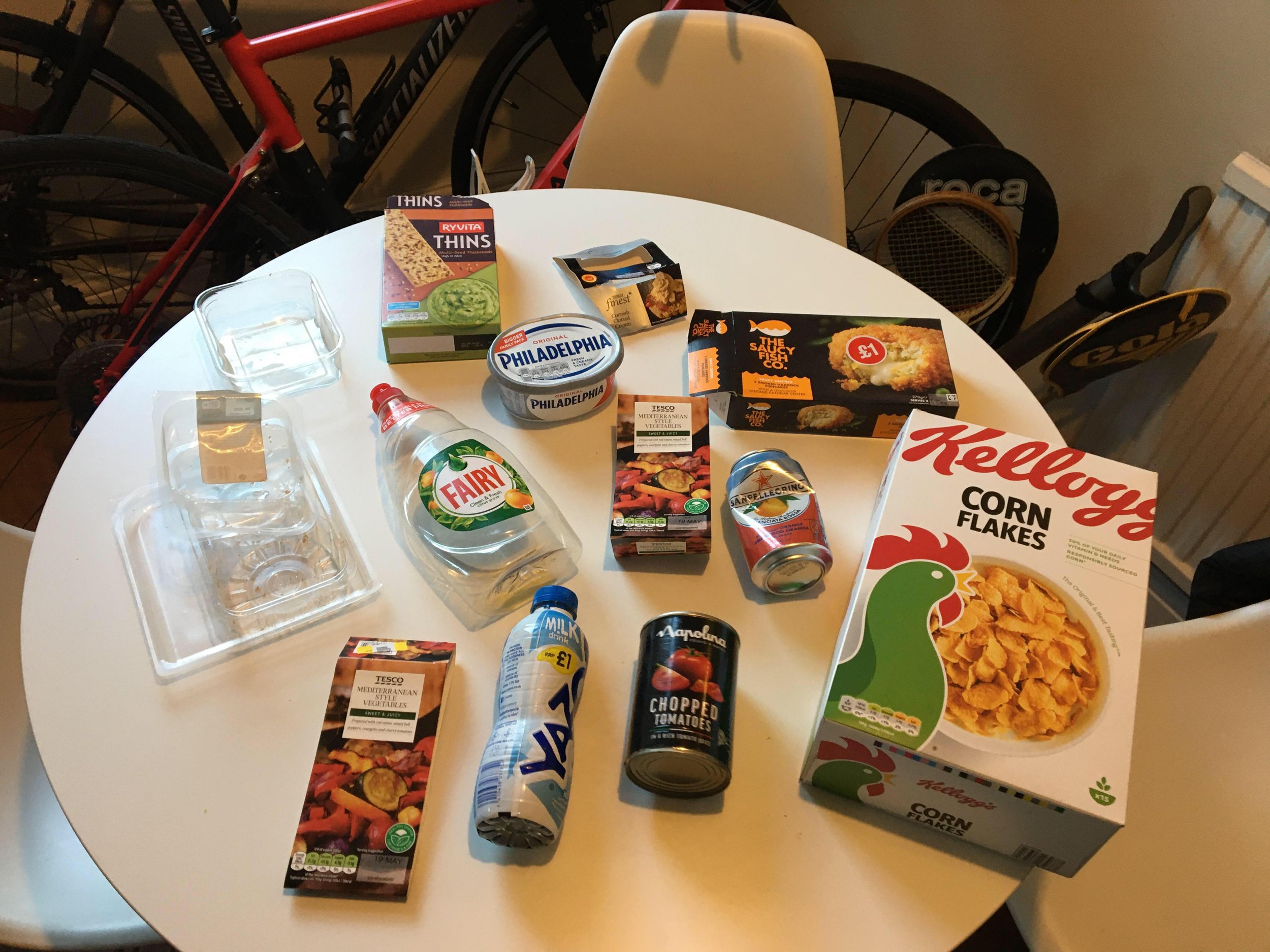
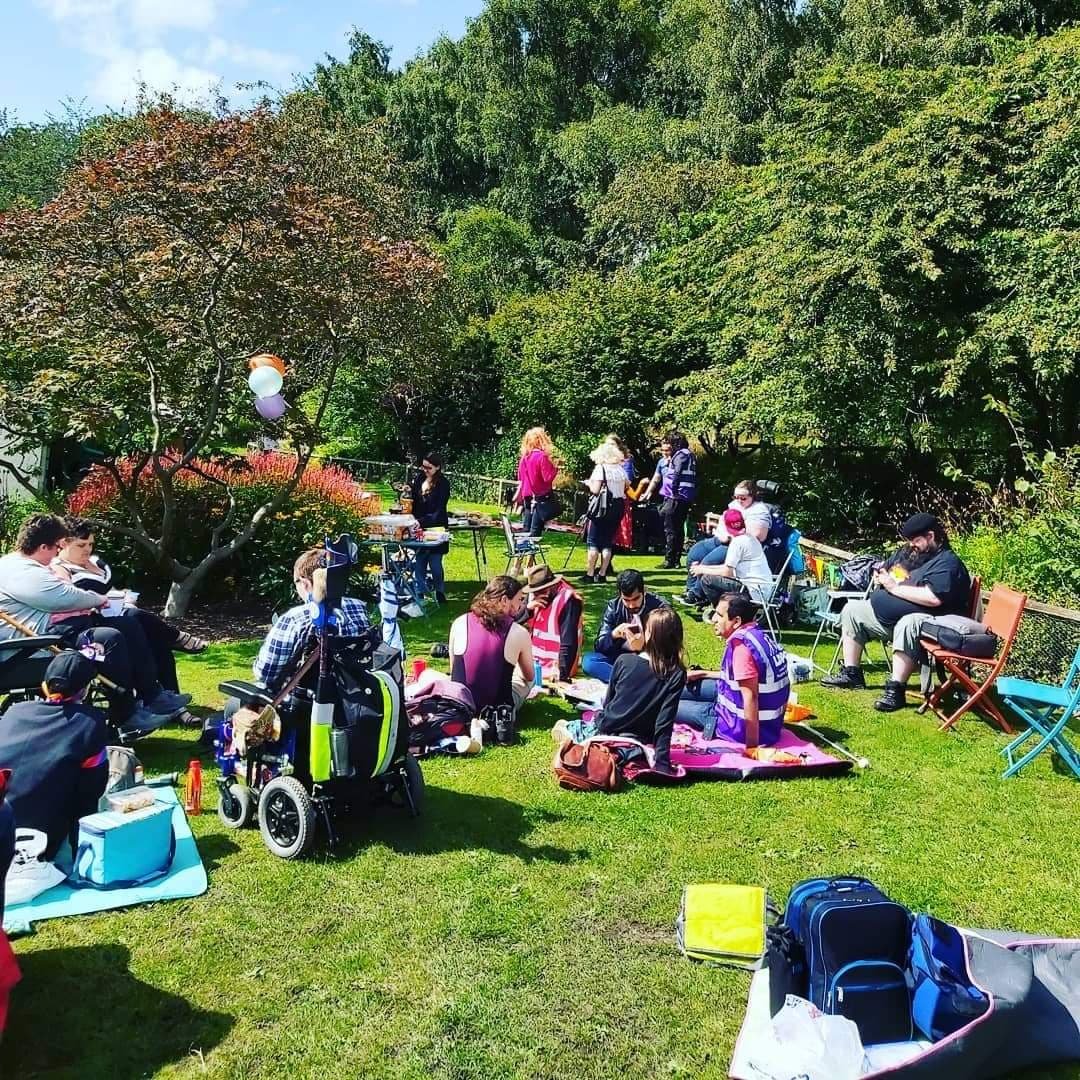

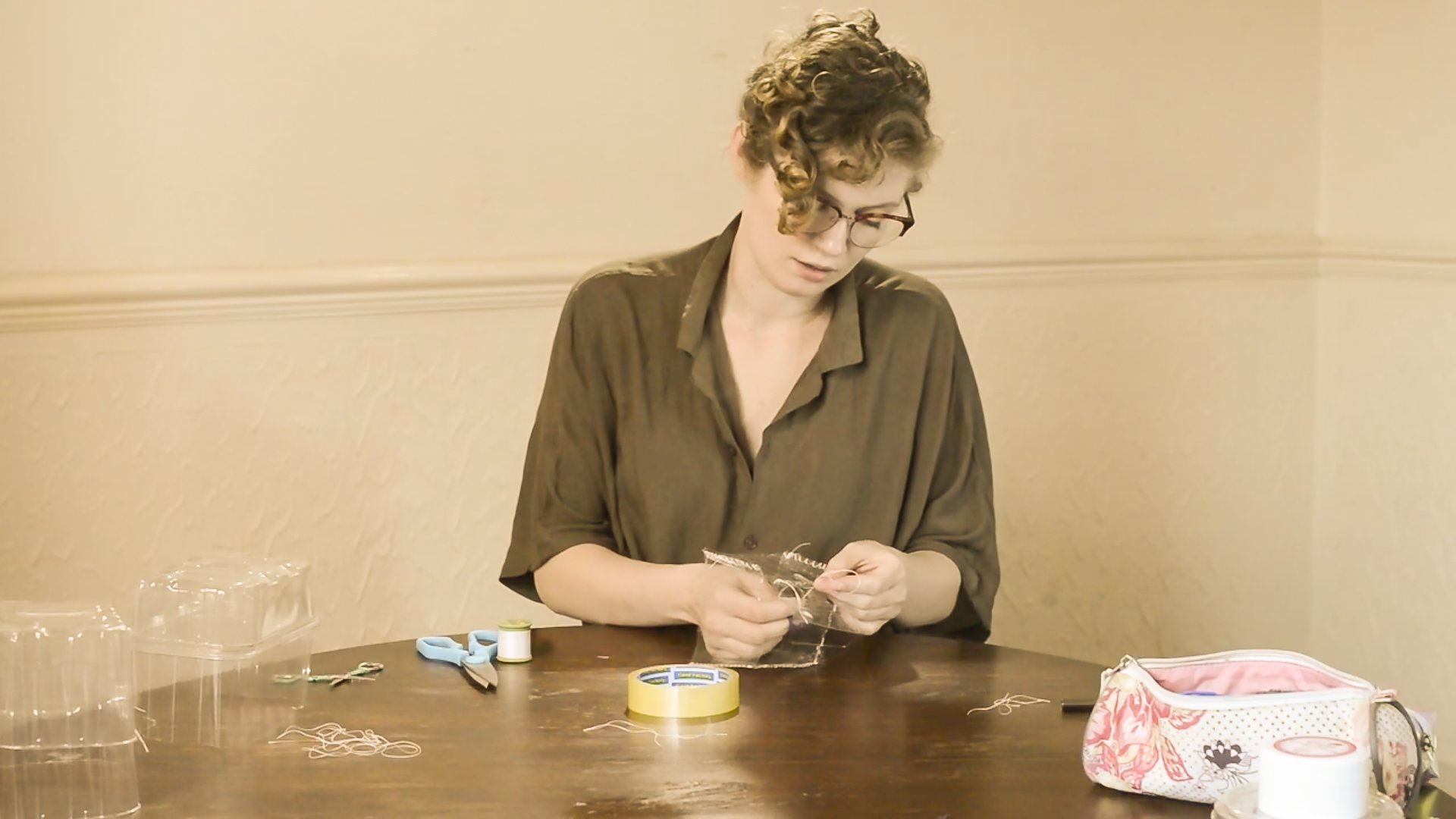
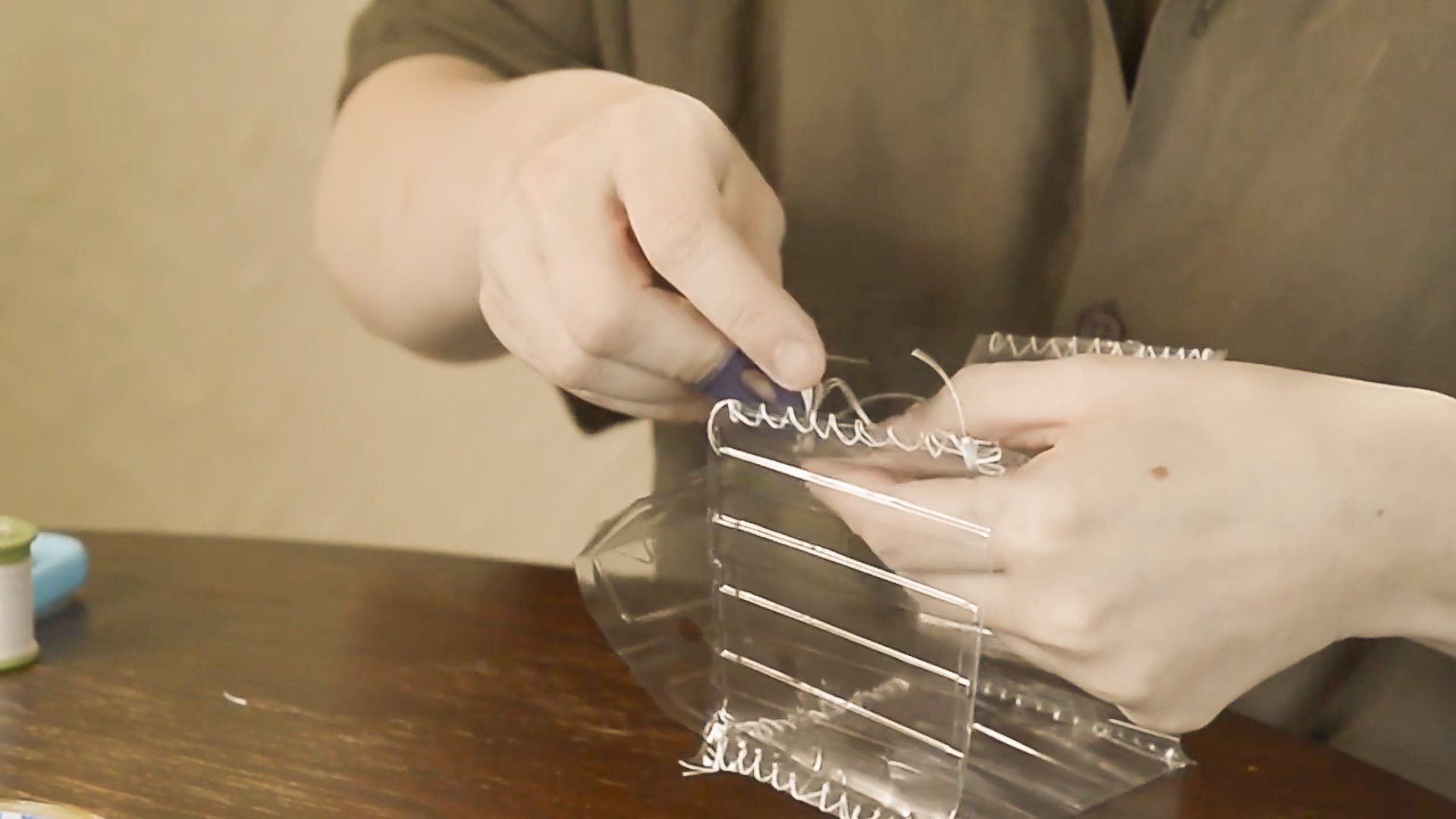

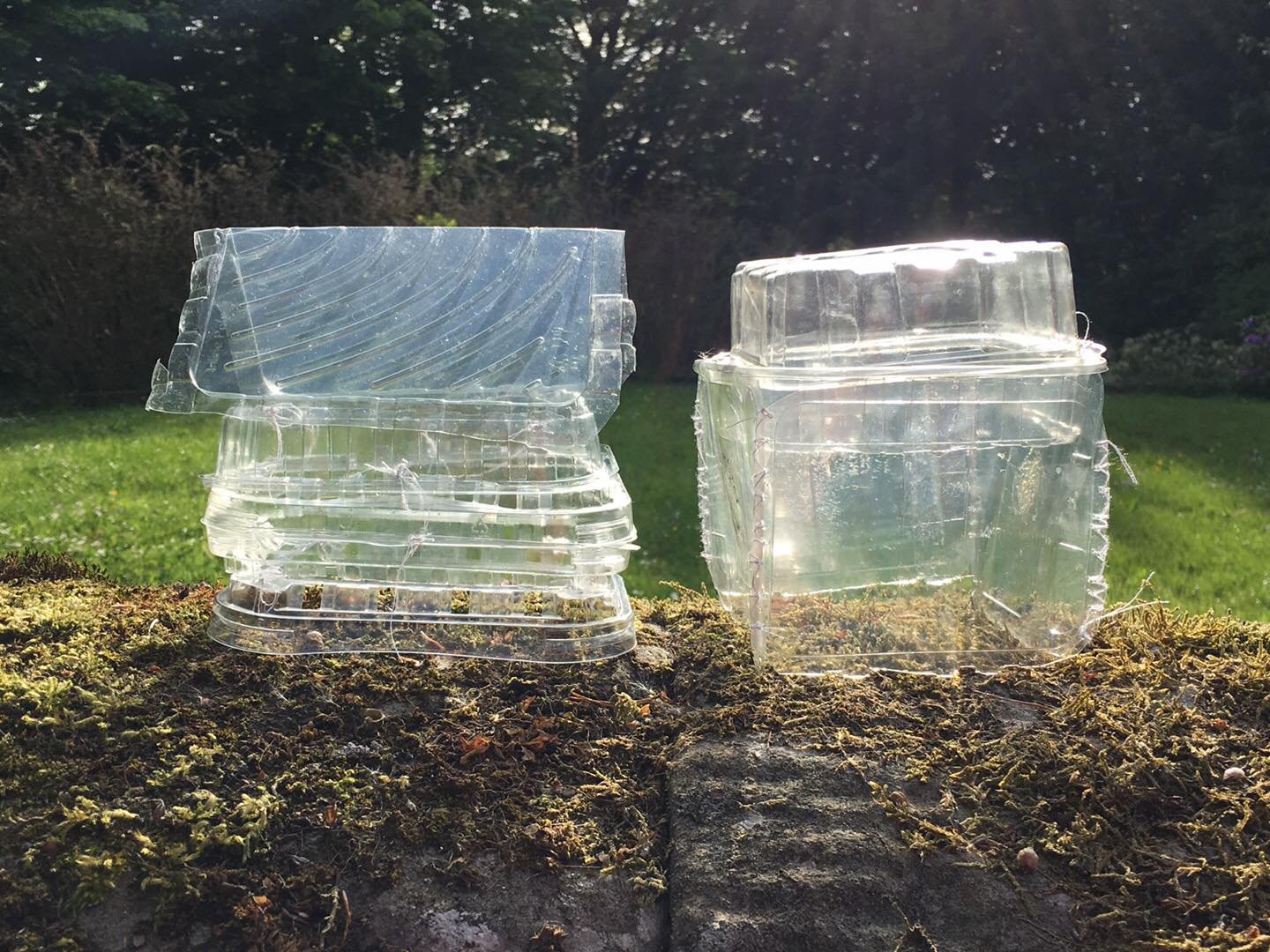
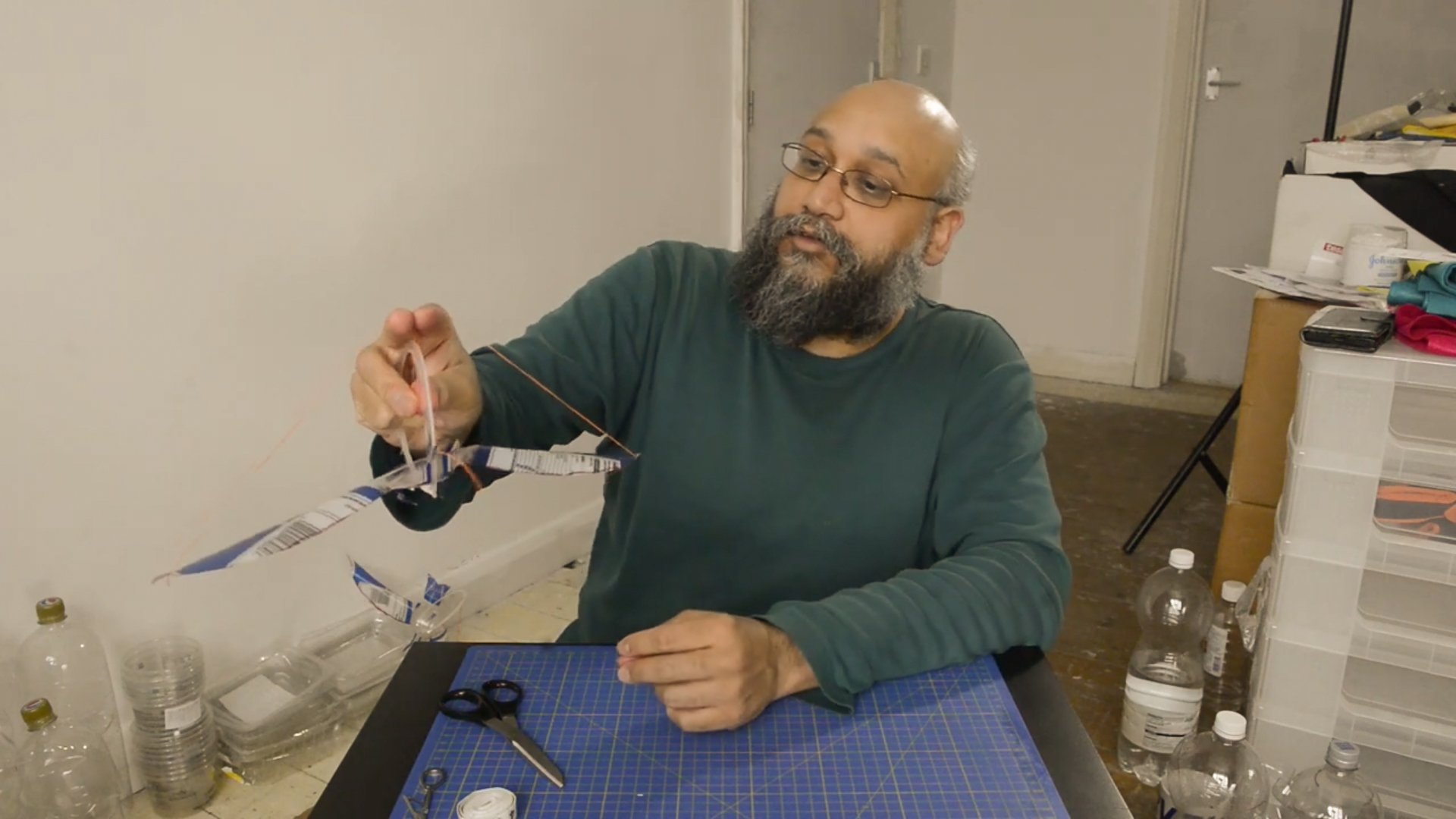
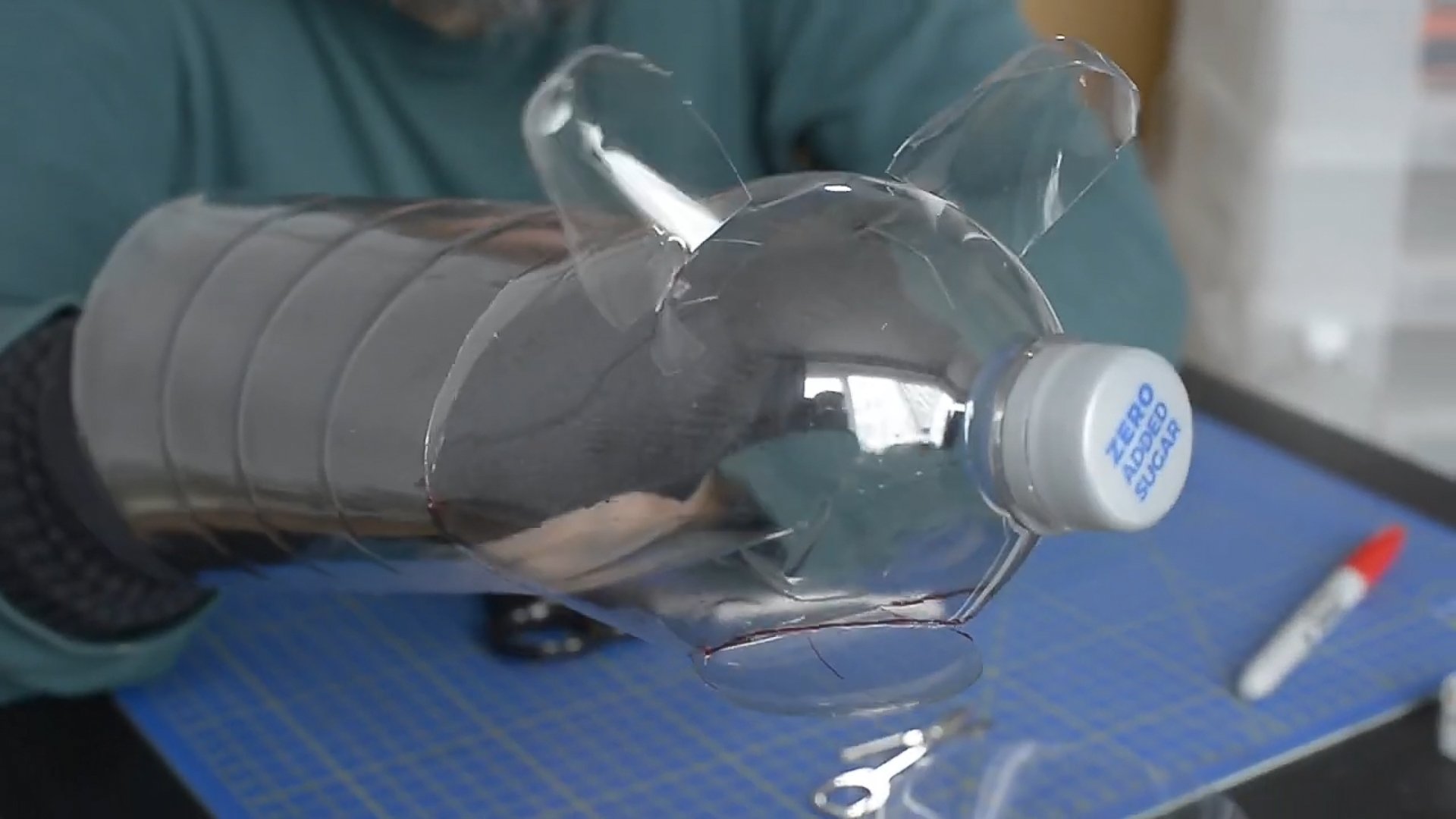
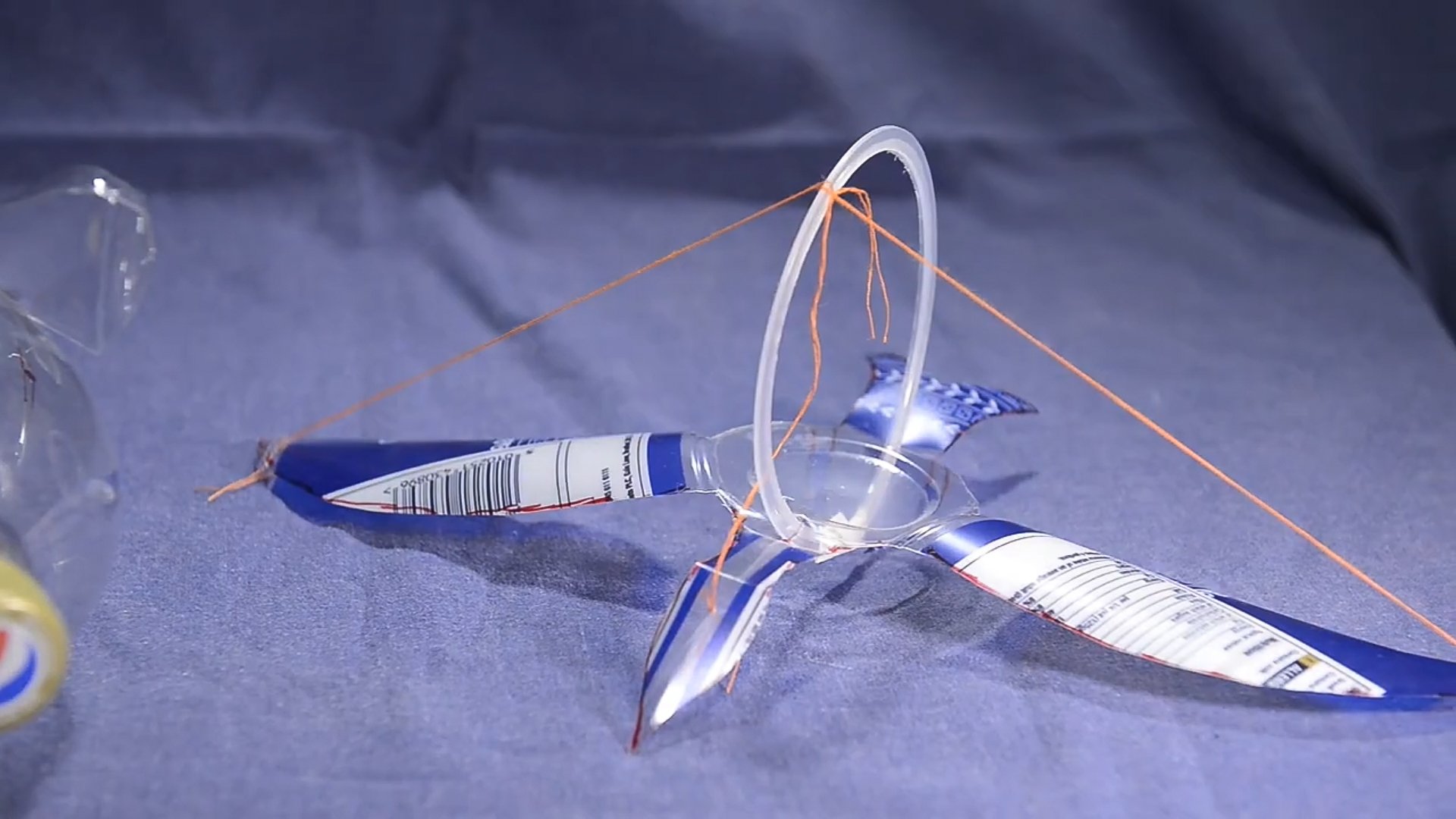

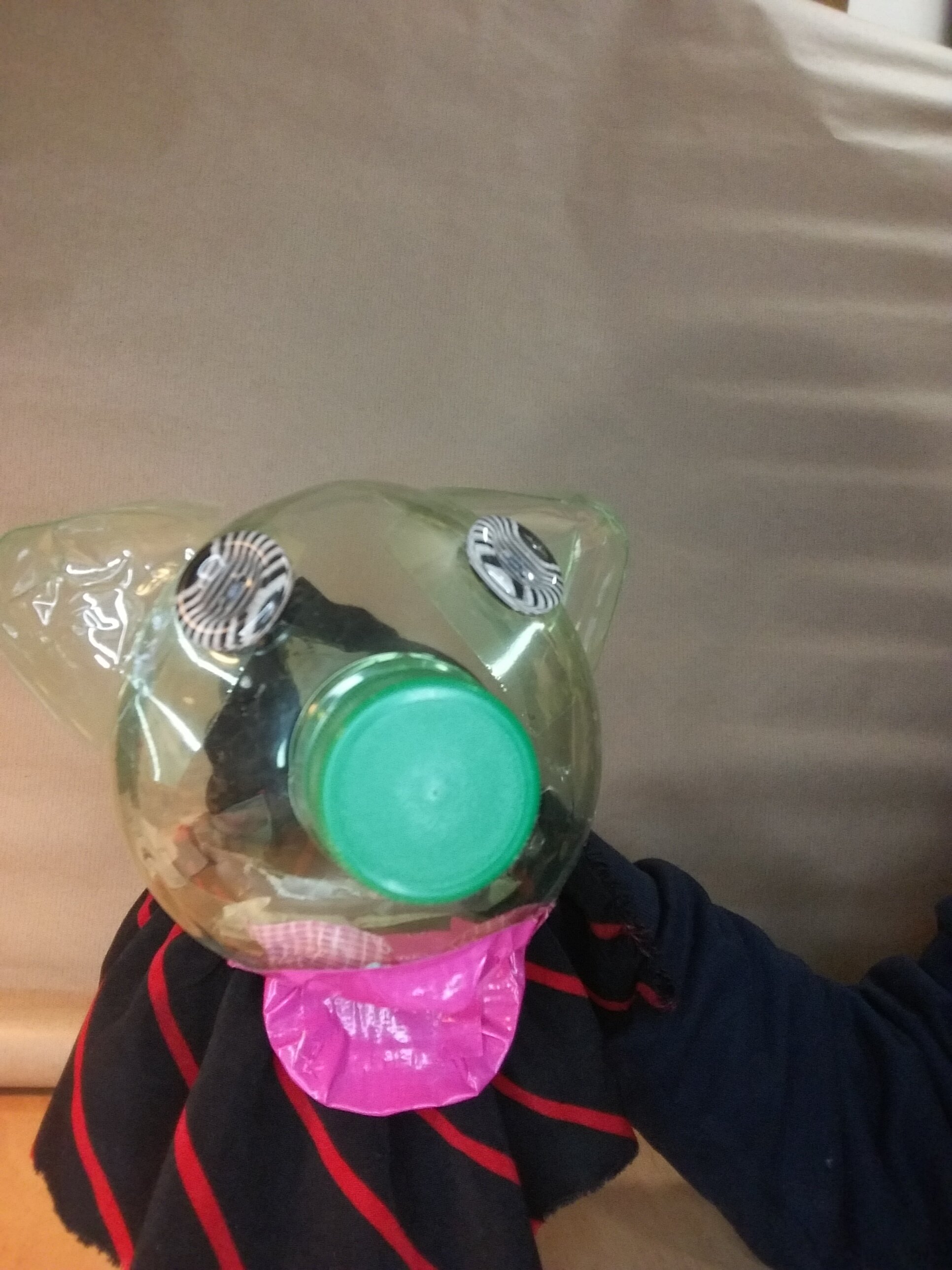
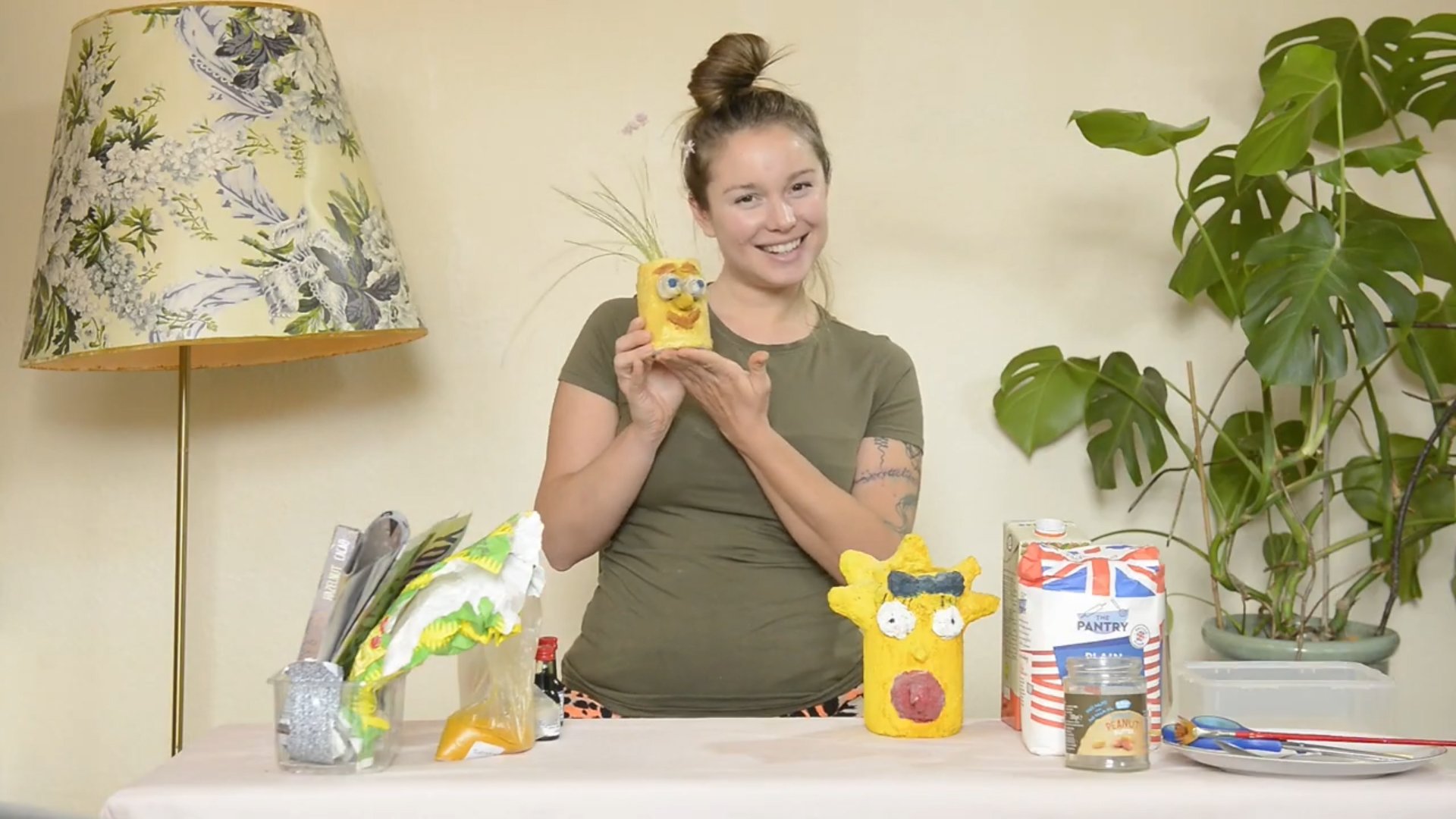
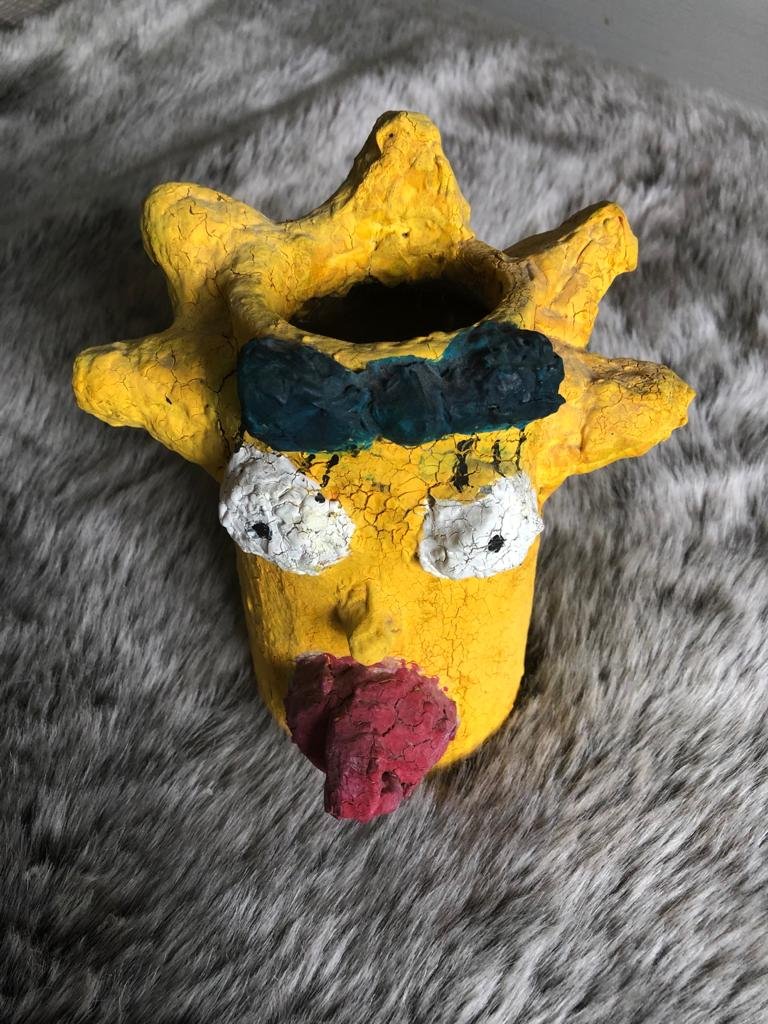
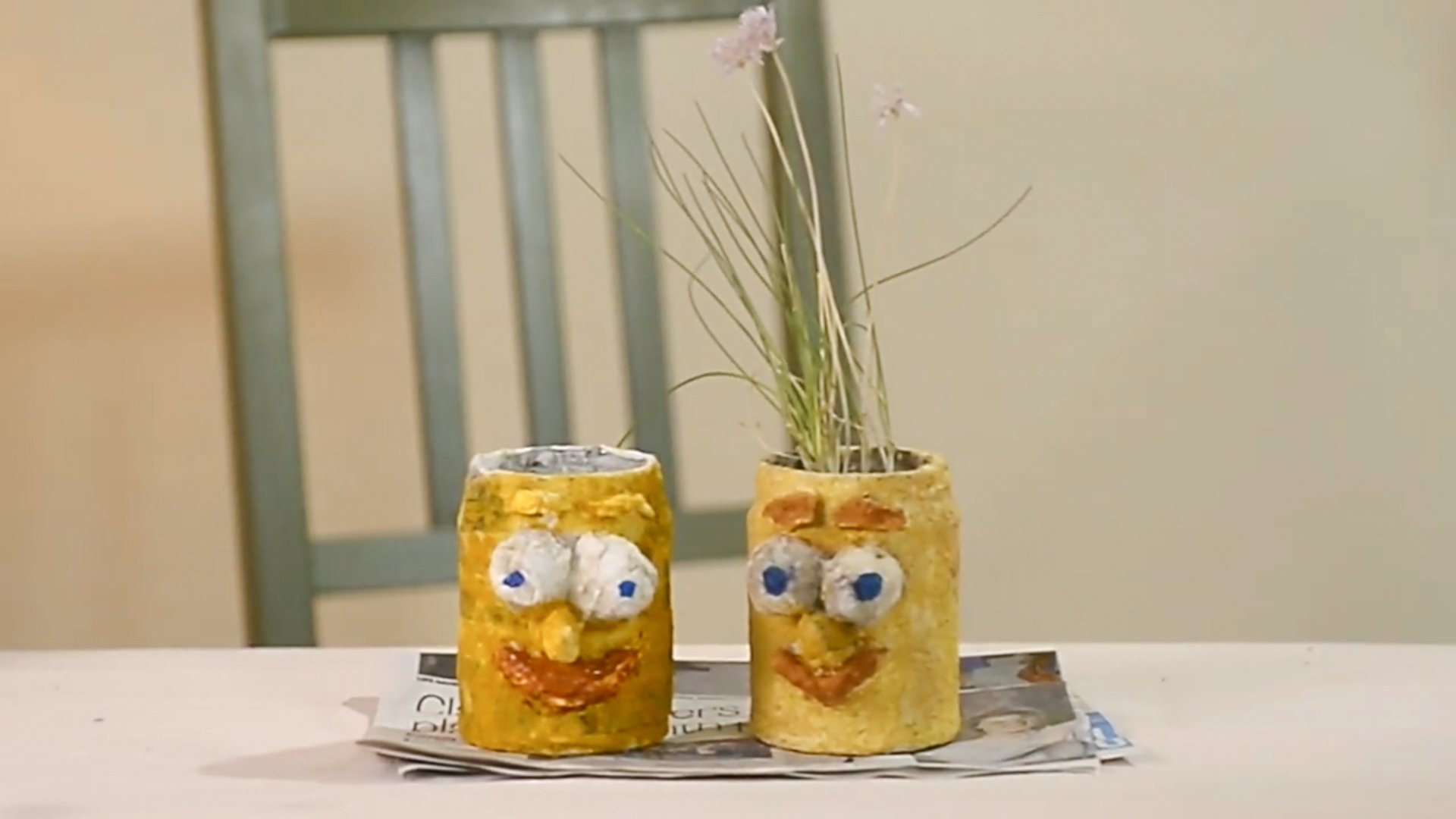
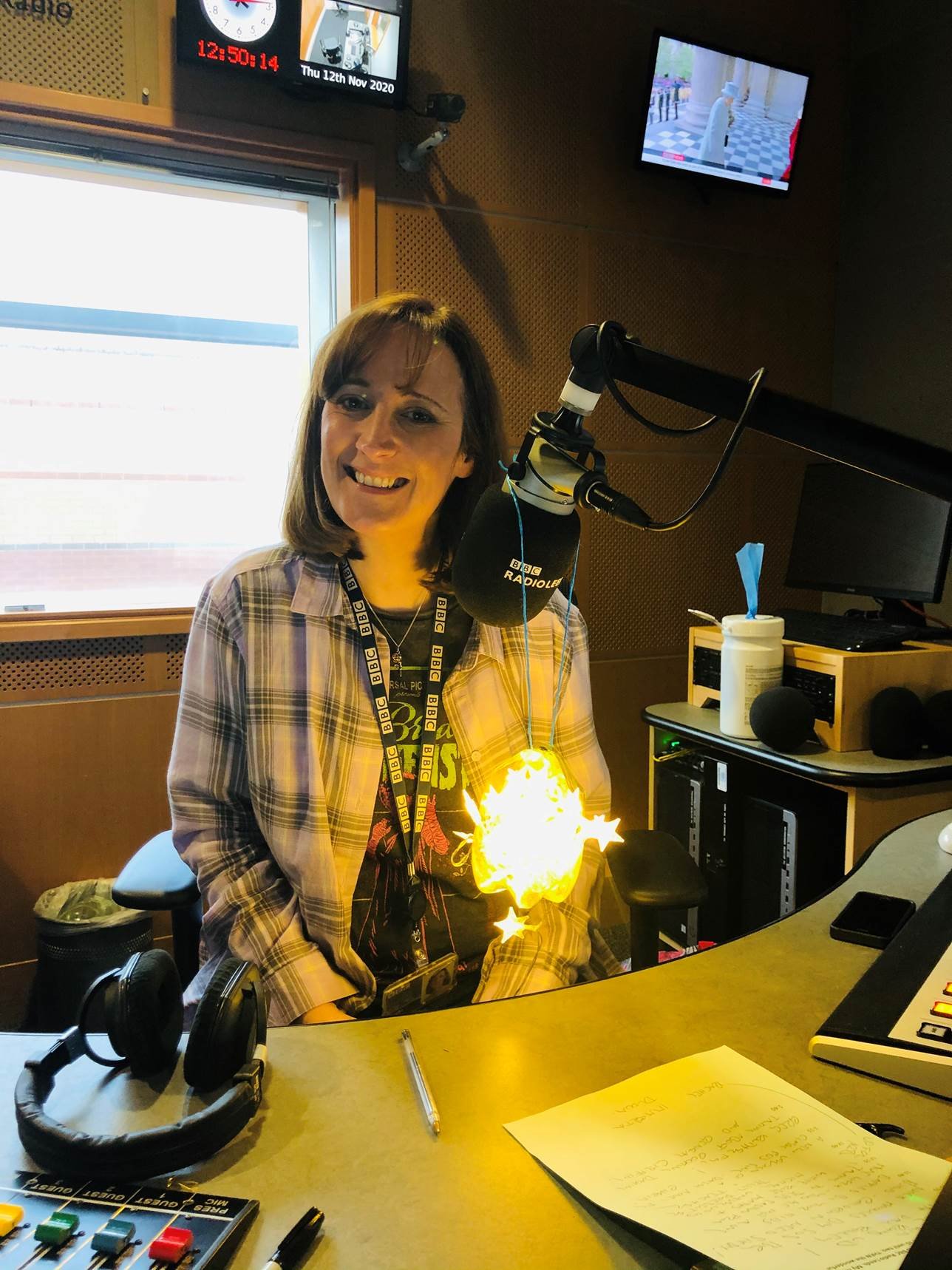
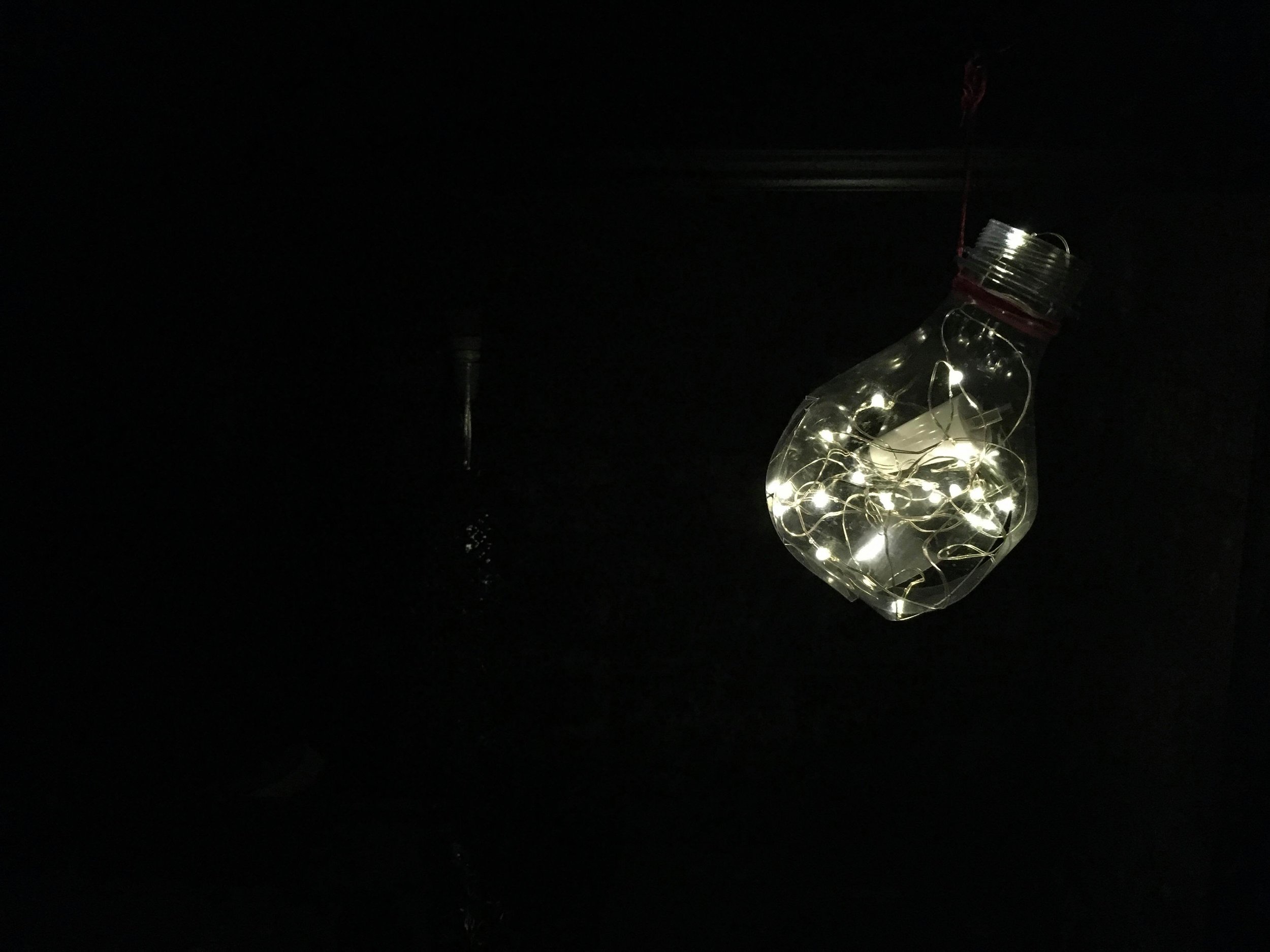
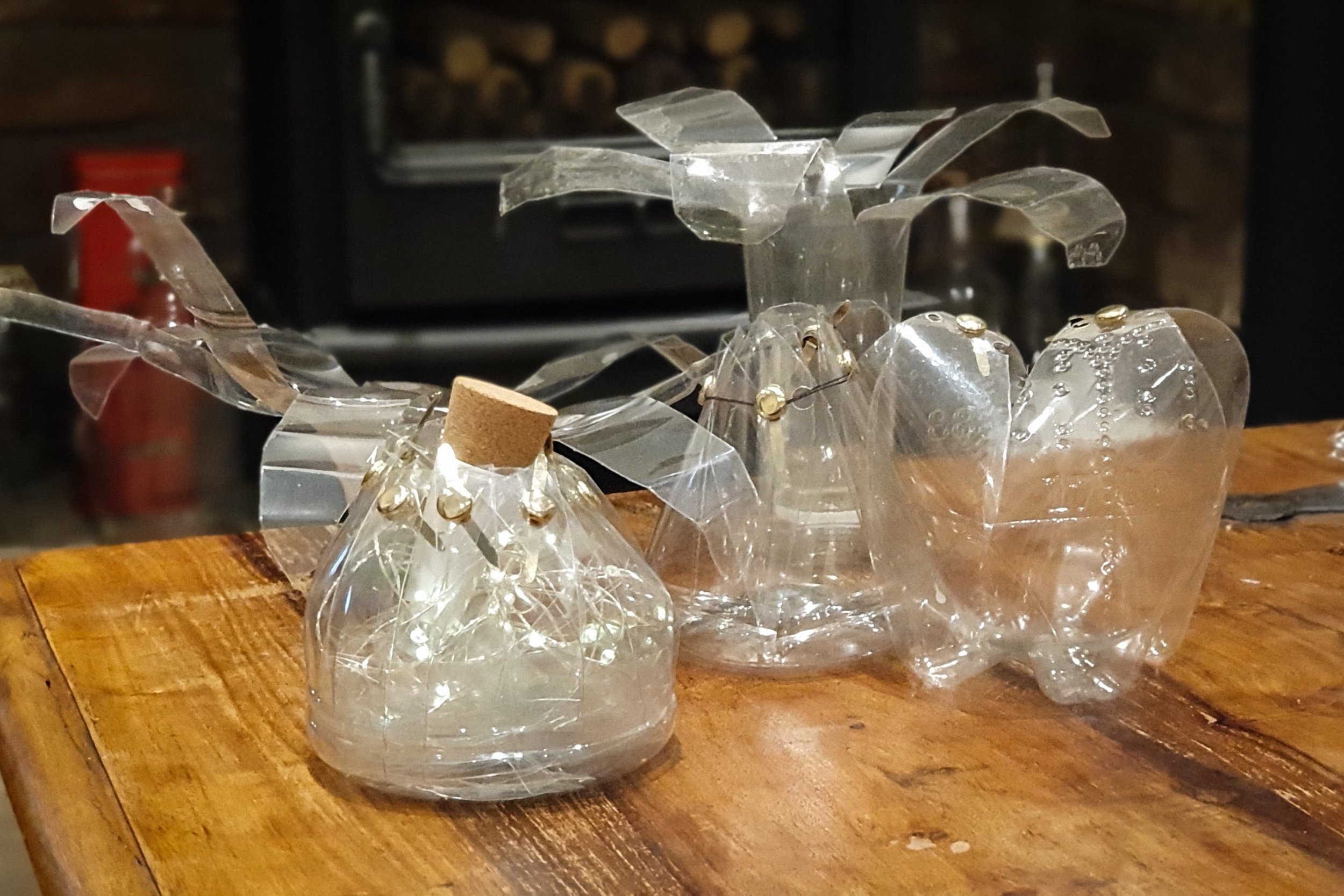
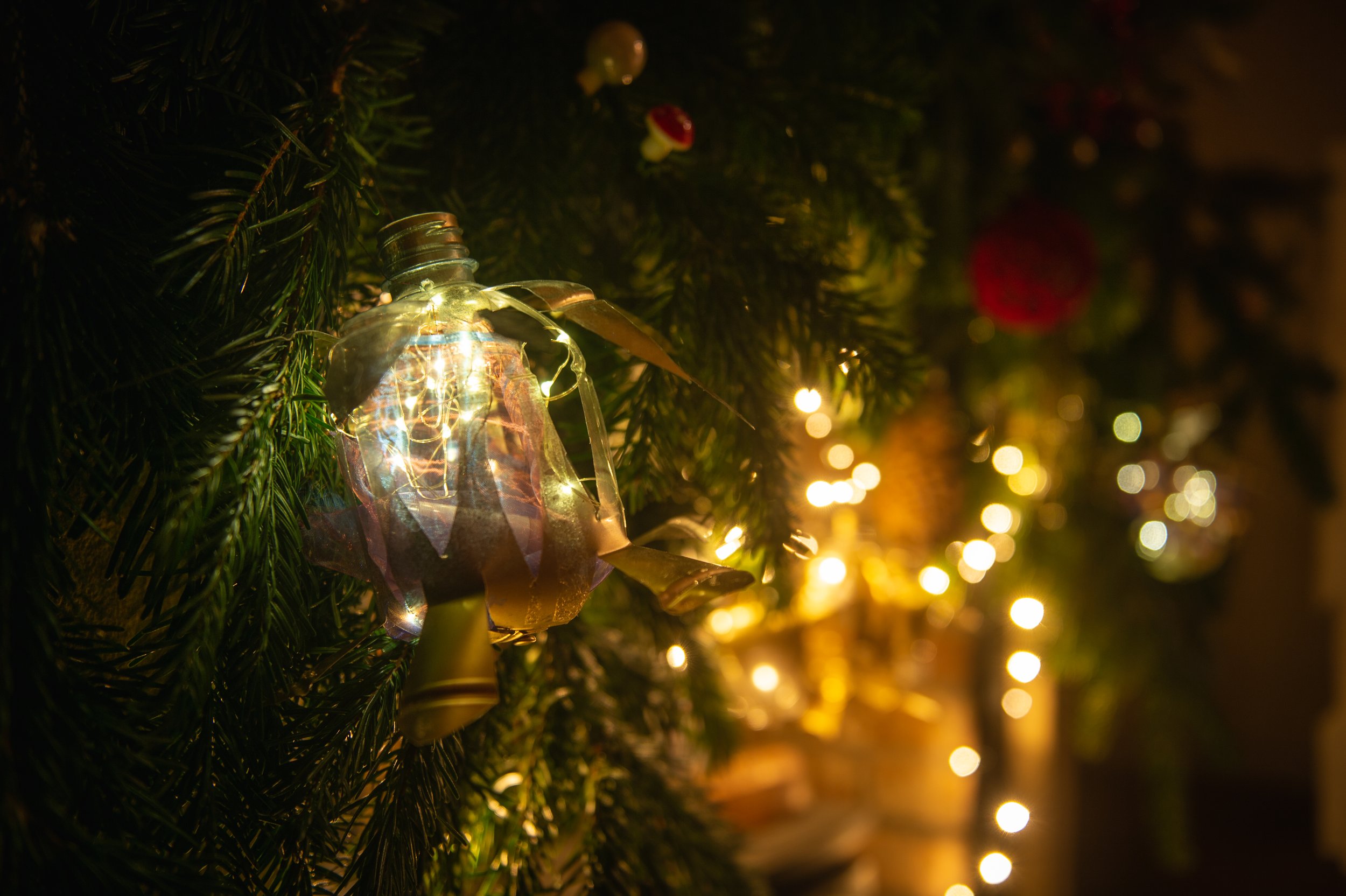
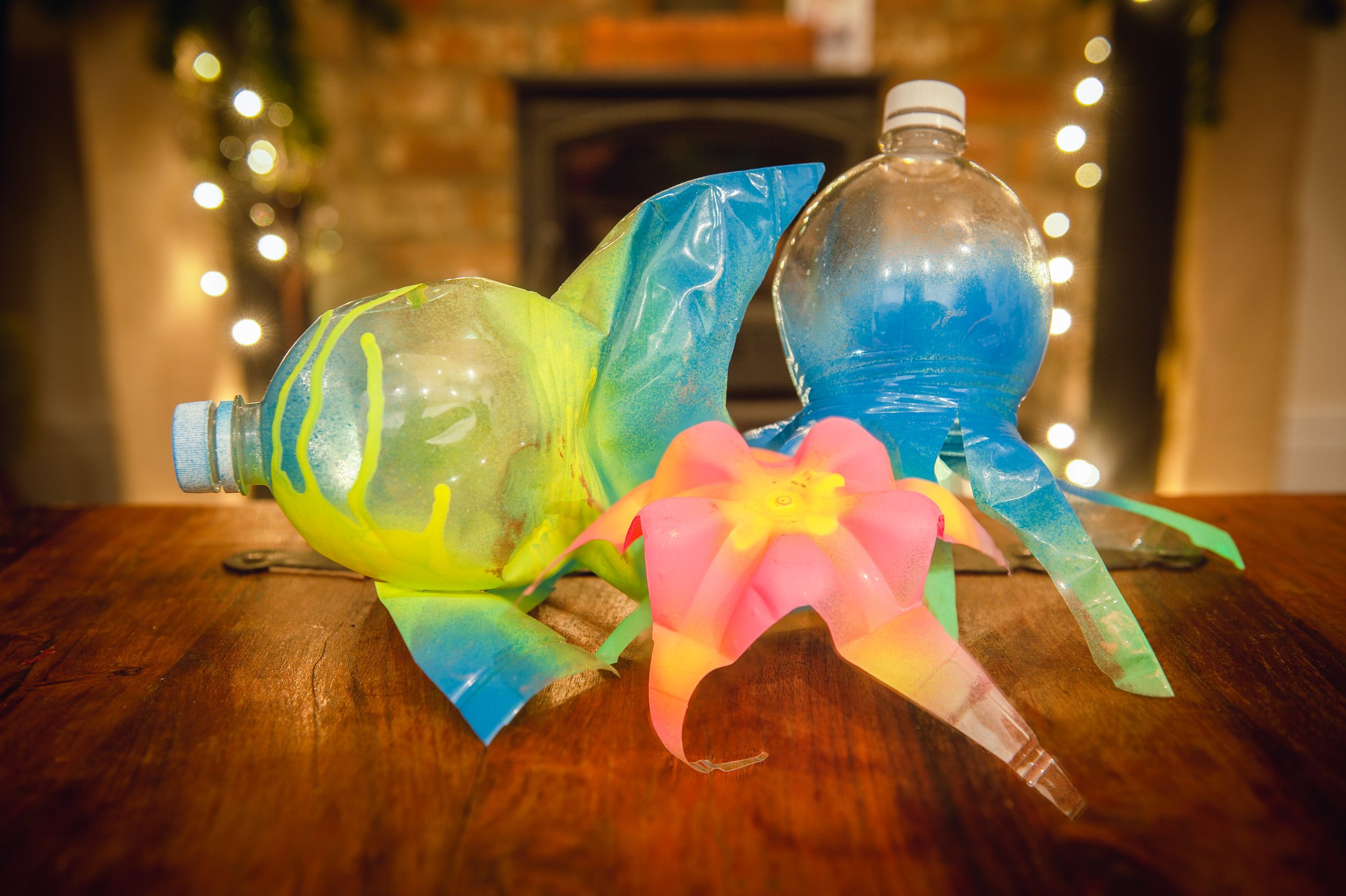
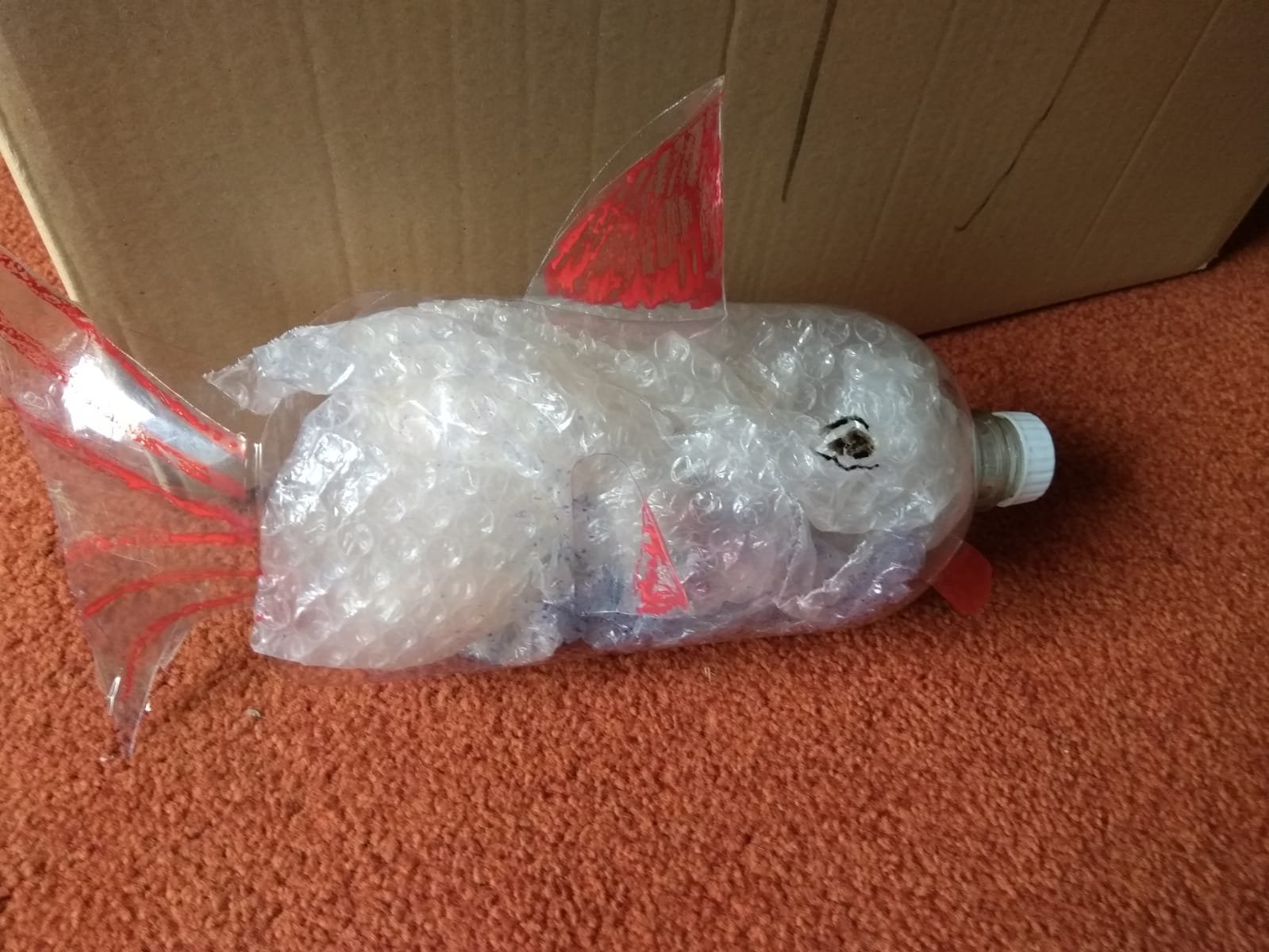
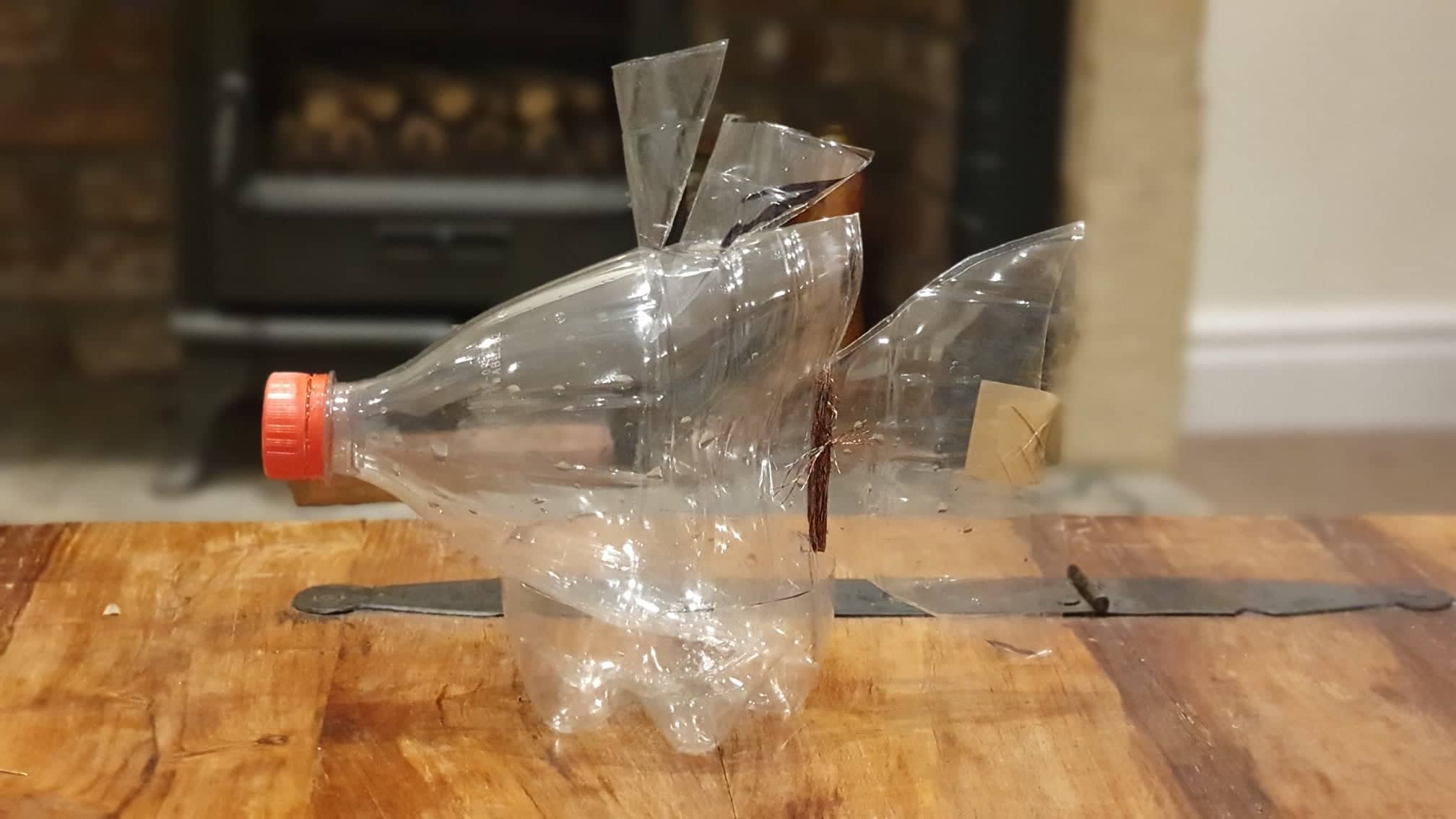
What People Are Saying
“Experiencing creativity in a way I've never considered before and working with materials that I've never tried before, all new positive experiences for me.”
—Nadeem (Participant)
“Engaging with others on-line within an arts workshop, a first for me. The tone and pitch of the arts workshop delivery was just right, a real and joyful fun experience”
— Ken (Councilor)
“Working with Rachel and Anzir from Immortal Bloom was a very positive experience. At all times I felt listened to and included. They made sure everything was clearly explained and had great enthusiasm backed up with an obvious depth of knowledge. I would consider myself lucky to have to opportunity to work collaboratively with them again in the future.”
—Verity (workshop assistant)
Funded and supported by





